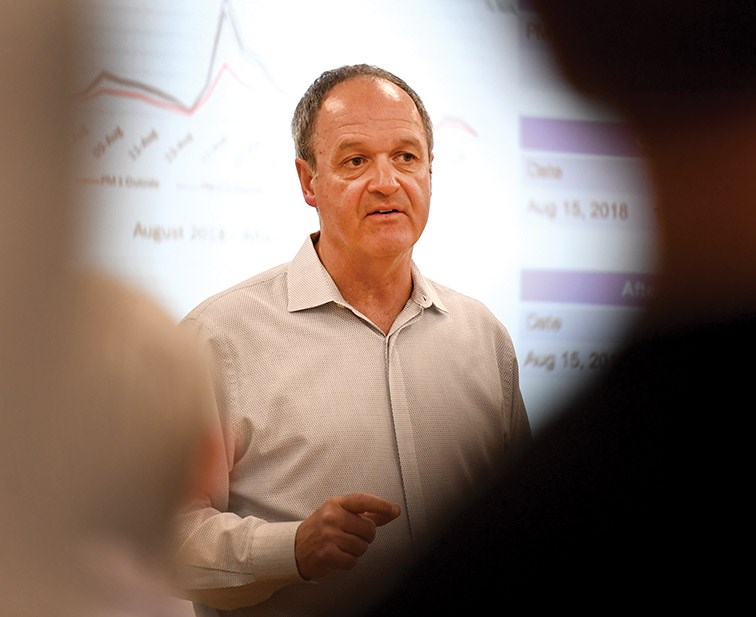It's all about the MERV.
Homeowners hoping to insulate their houses against the worst of the smoke from wildfires should look for a filter with a Minimum Efficiency Reporting Value of 11, those who attended a workshop were told on Tuesday.
The MERV is a rating system designed by the American Society of Heating, Refrigerating and Air-Conditioning Engineers and if a filter doesn't have a MERV, don't buy it, Kevin Delahunt said.
He said those with a rating of 11 provide a good balance between dealing with particulate matter of 2.5 microns or smaller - the type that can travel deep into lungs - while still allowing adequate air flow. For commercial buildings, the rating should rise to 13.
Just as important, he said the fit needs to be airtight. Without a proper fit, he said a filter with a MERV 13 that costs $170 is effectively reduced to a $10 MERV 8.
"We need a filter that's locked into place, sealed and 100 per cent of the air goes through the filter," Delahunt said.
Fortunately, he said the fixes can simply be a matter of strategically placing some duct tape or calking. However, where most furnaces provide a one-inch slot for the filter, Delahunt strongly recommends a six to eight-inch slot to allow a combination of filters to be installed.
From there, he said it's a matter of keeping the windows and doors closed and maintaining positive air pressure with the help of a fan.
"Air should be flowing out the doors, not coming in," Delahunt said.
Whatever you do, don't vacuum - that will only send settled particulate back into the air. The same goes for frying food and smoking.
There is no need for carbon filters. In an interview, Delahunt said they help deal with gases from wildfires but regular MERV-rated filters do just as good a job dealing with particulate.
"That's the killer," he said. "Particulate's bad."
As for air purifiers, Delahunt advised against buying the inexpensive ones advertised on television. He said they need to contain a HEPA or High Efficiency Particulate Absorber filter - capable of cleaning ridding almost 100 per cent of particles as small as 0.3 microns - and that's just part of the array.
"The box that it sits in is going to be two or three times the cost of the filter," he said. "Those filters are going to be $70, $80, $90 or $100. The housing that it sits in may be $200 or $300 and still needs a fan and a motor so you're talking a few dollars for one that's really going to work."
The purifier should show a stamp saying it's holding a HEPA filter.
As for when to replace a filter, Delahunt said it's just a matter of looking for discolouration. If it's starting to look particularly dark, it's time to get a new one, he said.
Delahunt is the sales administrator for The Filter Shop at BGE Supply Services Ltd., which has a store in Prince George. The workshop was put on by the B.C. Centre for Disease Control.



